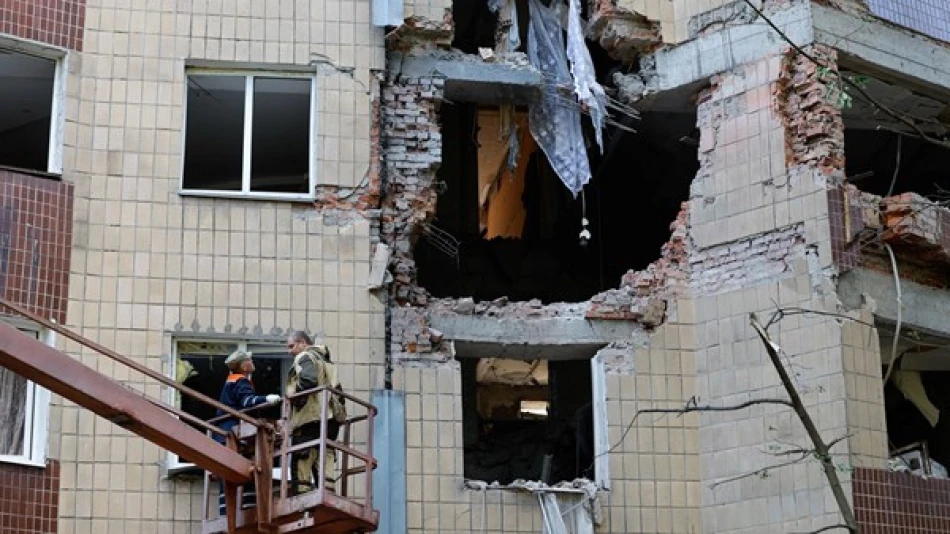
Rubio Advocates Ceasefire in Ongoing Ukraine Crisis
Rubio Signals Ceasefire Still on Table as Trump Shifts Ukraine Strategy After Putin Summit
US Secretary of State Marco Rubio indicated Sunday that a ceasefire remains a viable option in Ukraine negotiations, despite President Trump's apparent pivot away from immediate cessation of hostilities following his recent Alaska summit with Vladimir Putin. The comments suggest Washington is keeping multiple diplomatic pathways open as Ukrainian President Volodymyr Zelensky prepares for crucial White House talks with European leaders.
Trump's Strategic Recalibration
The timing of Rubio's remarks reflects a notable shift in the Trump administration's approach to the Ukraine conflict. Just days after the Trump-Putin Alaska meeting, the US president abandoned his previous calls for an immediate ceasefire, instead emphasizing the need for comprehensive peace negotiations that would definitively end the crisis.
This tactical adjustment mirrors similar diplomatic pivots seen in other major conflicts, where initial ceasefire proposals give way to more ambitious peace frameworks. The move suggests Trump may be prioritizing a lasting settlement over temporary cessation of hostilities—a strategy that could prove more durable but requires significantly more complex negotiations.
Diplomatic Chess Game Intensifies
Rubio's NBC News interview revealed the delicate balance Washington is attempting to strike. When asked directly whether ceasefire options were off the negotiating table, he responded firmly: "No, it's not excluded." He emphasized that comprehensive peace agreements represent the optimal path forward, noting that such an outcome would be universally welcomed.
However, the Secretary of State acknowledged a fundamental challenge: while the United States has advocated for ceasefire measures, Russia has yet to signal agreement. This asymmetry in positions could complicate upcoming negotiations, particularly as Zelensky arrives in Washington Monday alongside European leaders for critical White House discussions.
Market and Geopolitical Implications
The diplomatic maneuvering carries significant implications for global markets and regional stability. Energy markets, particularly European natural gas and oil futures, remain sensitive to any shifts in Ukraine conflict dynamics. A comprehensive peace deal could fundamentally reshape European energy security calculations and reduce the geopolitical risk premium built into commodity prices.
For defense contractors and military suppliers, the trajectory of negotiations could influence long-term procurement strategies across NATO allies. Extended conflict supports continued military aid flows, while successful peace negotiations might redirect resources toward reconstruction and economic development initiatives.
Historical Precedent and Strategic Calculations
Trump's approach echoes diplomatic strategies employed in previous major conflicts, where immediate ceasefire calls evolved into broader peace frameworks. The Camp David Accords and Dayton Agreement both demonstrated how comprehensive negotiations can achieve more durable outcomes than temporary truces.
The administration appears to be calculating that Putin may be more receptive to a grand bargain that addresses broader security concerns rather than incremental ceasefire measures. This strategy carries higher risks but potentially offers greater rewards in terms of lasting conflict resolution.
As Zelensky prepares for his Washington visit with European allies, the diplomatic landscape appears increasingly fluid. Rubio's comments suggest the administration is maintaining tactical flexibility while pursuing its preferred comprehensive peace strategy—a approach that could define the conflict's trajectory in the coming months.
Most Viewed News

 Layla Al Mansoori
Layla Al Mansoori






